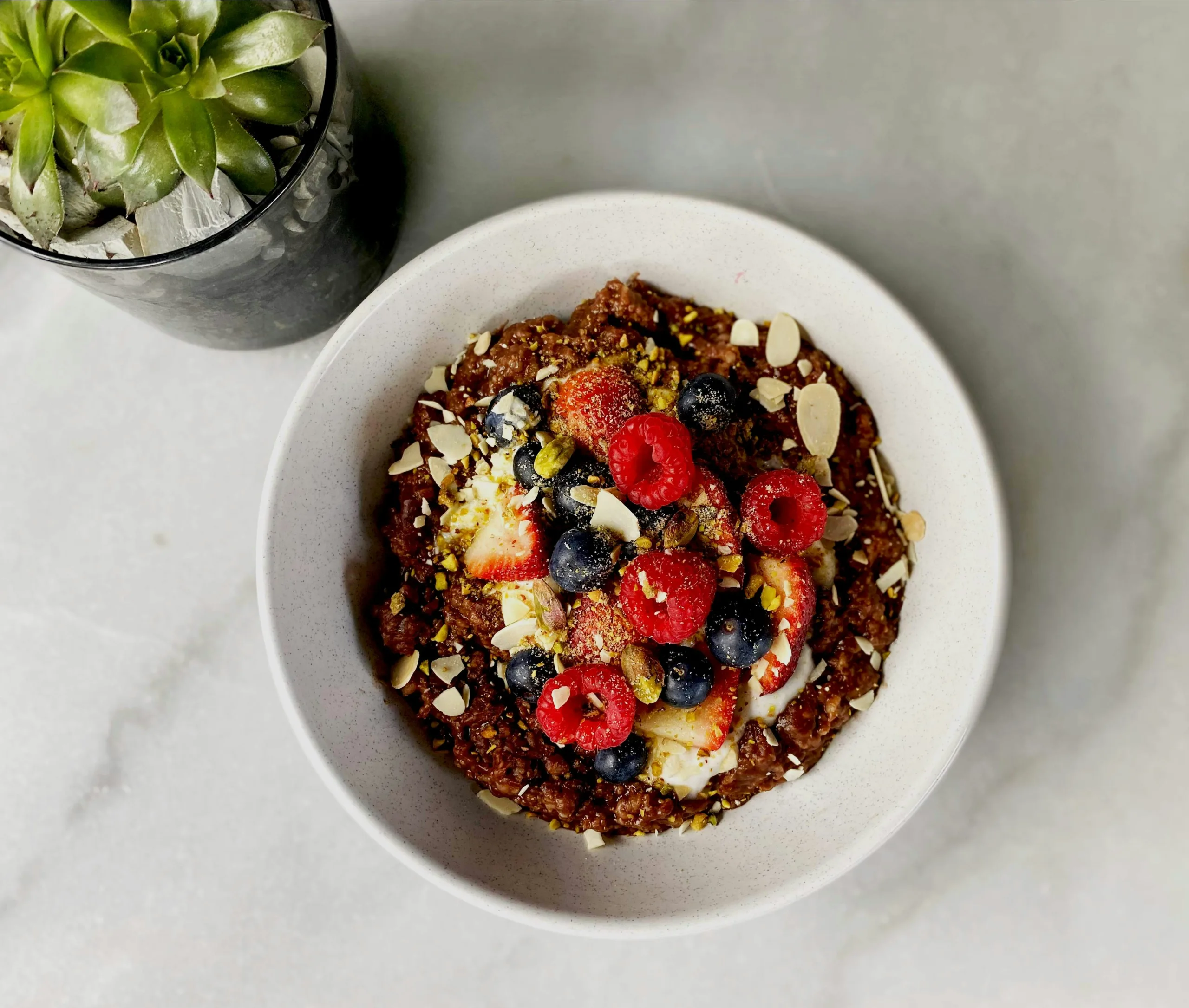Ask Keri: Are there changes I can make to my diet to relieve the symptoms of PCOS?
Keri says: PCOS (Polycystic Ovary Syndrome) is a hormonal imbalance that many women used to suffer from in silence. Thankfully, it’s becoming a more well-known issue (thanks celebs!), which means more women can get help.
RELATED: What Every Woman Needs to Know About PCOS
While doctors still don’t know exactly what causes it, research points to factors like imbalances in hormones (specifically high levels of androgens and insulin) and body fat percentage, which are totally intertwined.
The good news: weight and hormone imbalances are majorly affected by what you eat and your stress levels, so diet and lifestyle changes are a great place to start when it comes to reducing symptoms and getting better. Here’s what I recommend.
PCOS Diet Recommendations
1. Focus on achieving a healthy weight
When it comes to advising people on how to eat, I rarely start with weight loss, but here, it’s extra important. Excess body fat is closely tied to hormone imbalances. Insulin resistance, which is associated with PCOS, often occurs because an individual is overweight or obese. If you’re carrying a lot of extra pounds, focus on healthy ways to drop the weight, first.
RELATED: 10 Smart, Healthy Ways to Lose 10 Pounds
2. Cut back on refined carbs and sugar
Avoid foods with a high glycemic index like white rice, foods made with white flour, pasta, cakes, cookies, and candy. Also read labels to avoid added sugar in sneaky places such as salad dressing. Avoid packaged and processed foods with added sugar.
3. Prioritize fiber
Fiber is key, and if you choose lots of whole, plant-based foods, you’ll get plenty. Healthy, high-fiber foods include legumes, vegetables, and whole grains such as farro and quinoa.
4. Eat balanced, frequent meals
Since insulin issues may be involved, it may help to eat smaller, more frequent meals to help control blood glucose levels. No matter how often you’re eating, make sure you’re getting lean protein, healthy fat, and unrefined carbs at every meal.
RELATED: Why Balancing Your Hormones Is Important (and How to Do It)
5. Check your vitamin D
While research on the exact link between Vitamin D levels and PCOS has so far been inconclusive, vitamin D deficiencies are associated with insulin resistance. In other words, it can’t hurt to make sure you’re getting enough of the vitamin (especially since it’s important for many other reasons!), via sunshine, diet, or supplementation.
Try starting with these diet tips if you’ve been diagnosed with PCOS but remember: stress is just as powerful a factor when it comes to hormone imbalances. So if you don’t also focus on reducing stress in your life or learning to manage it better, the food changes may be in vain.
(Featured Photo: Shutterstock)





























